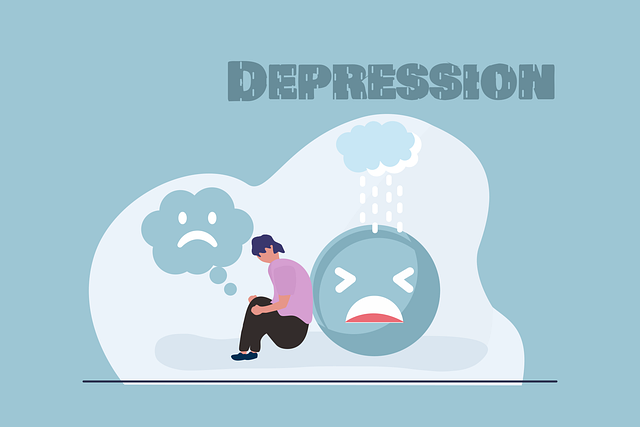Highlands Ranch Self-Esteem Therapy emphasizes comprehensive risk assessment and management in mental health practice, focusing on patient and practitioner safety. This involves evaluating vulnerabilities like trauma, medication interactions, and suicidal ideation to tailor therapeutic approaches. Risk Management Planning provides guidelines for crisis intervention, empowering professionals to handle complex scenarios confidently. Through mindfulness practices, self-reflection, and open dialogue, therapists create safer spaces, reducing burnout risk. Case studies of high-risk situations inform strategies for proactive mood management, preventing burnout and enhancing client outcomes while prioritizing therapist well-being.
Mental health professionals strive to create safe, supportive environments for their clients. However, risk assessment is a crucial component of ensuring therapeutic safety. This comprehensive guide explores the essential elements of risk management in mental health practice, from understanding the basics of risk assessment to identifying specific risks in therapy settings. We delve into practical strategies for mitigating risks and offer valuable insights through case studies, including examples from Highlands Ranch Self-Esteem Therapy.
- Understanding Risk Assessment in Mental Health Practice
- Identifying Potential Risks and Hazards in Therapy Settings
- Strategies for Mitigating Risks: A Comprehensive Approach
- Case Studies: Learning from High-Risk Situations in Highlands Ranch Self-Esteem Therapy
Understanding Risk Assessment in Mental Health Practice

In the field of mental health, risk assessment is a fundamental practice that enables professionals to provide effective and safe care. It involves systematically evaluating potential hazards and vulnerabilities within a therapeutic setting, focusing on both patient and practitioner well-being. For Highlands Ranch Self-Esteem Therapy practitioners, understanding this process is paramount as it ensures the highest standards of care and fosters a nurturing environment. By assessing factors such as previous trauma, medication interactions, and suicidal ideation, therapists can tailor their approach to meet individual needs, thereby enhancing emotional well-being promotion techniques.
Risk Management Planning for Mental Health Professionals plays a pivotal role in mitigating potential crises. This proactive strategy involves developing comprehensive guidelines and protocols that guide practitioners through challenging situations, including crisis intervention guidance. By implementing these plans, mental health professionals can confidently navigate complex scenarios, ensuring the safety of both themselves and their clients while providing timely support.
Identifying Potential Risks and Hazards in Therapy Settings

In therapy settings, mental health professionals must be vigilant in identifying potential risks and hazards that could impact their well-being and that of their clients. One significant area to focus on is the emotional intensity often experienced during therapeutic processes, particularly in Highlands Ranch Self-Esteem Therapy. Clients may reveal traumatic experiences or struggle with intense emotions, which can trigger stress and burnout for therapists if not managed effectively. Additionally, the nature of therapy itself can expose professionals to high levels of empathy, requiring robust self-care strategies to prevent emotional exhaustion.
Stress reduction methods, such as mindfulness practices and regular self-reflection, are essential tools for navigators in this field. Public awareness campaigns development and empathy building strategies can also play a crucial role in mitigating risks. By fostering an environment that encourages open dialogue about mental health challenges, therapists can reduce the stigma surrounding therapy and create safer spaces for both clients and themselves.
Strategies for Mitigating Risks: A Comprehensive Approach

Mental health professionals face unique challenges that can expose them to various risks. However, a comprehensive approach to risk mitigation can help create a safe and supportive environment for both practitioners and clients. Strategies for mitigating risks involve a multi-faceted approach tailored to address specific concerns within the profession.
One key component is fostering strong community outreach programs that connect professionals with support networks. This includes initiatives that promote positive thinking, inner strength development, and peer mentoring. For instance, Highlands Ranch Self-Esteem Therapy could organize workshops or group sessions focused on resilience building and stress management, empowering therapists to handle demanding situations effectively. Additionally, implementing regular self-care practices, such as mindfulness exercises, can enhance professionals’ ability to manage their own mental health while providing quality care to clients.
Case Studies: Learning from High-Risk Situations in Highlands Ranch Self-Esteem Therapy

Highlands Ranch Self-Esteem Therapy provides a unique lens through which to examine risk assessment in mental health practices. By studying case studies of high-risk situations, therapists can gain invaluable insights into managing challenging client scenarios. These instances highlight critical decision points and potential pitfalls, offering lessons in risk management planning for mental health professionals.
Through these case studies, the importance of proactive mood management strategies becomes evident, as they help prevent burnout and ensure practitioners remain equipped to handle complex cases. By learning from both successes and failures, therapists can refine their approach, enhancing client outcomes while prioritizing their own well-being—a key aspect of sustainable practice in the field of mental health care.
Mental health professionals must navigate complex situations, and understanding risk assessment is paramount for a safe and effective practice. By identifying potential risks in therapy settings, such as those encountered in Highlands Ranch Self-Esteem Therapy, practitioners can implement comprehensive strategies to mitigate these hazards. This proactive approach ensures the well-being of both professionals and clients, fostering an environment that promotes healing and growth while minimising potential dangers.














